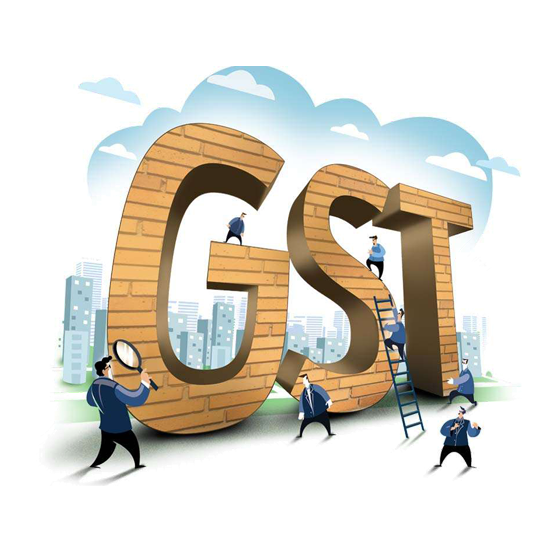- Business Startup
- Startup-Indian Entities
- Startup-Foreign Entities
- Business/Entity Conversion
- Business Registration
- Tax & ROC
- Yearly Tax Compliances
- Income Tax Return Filing
- ITR for Salaried Individuals/ Pensioner
- ITR for Capital Gain
- ITR for Companies
- ITR for House Property Income
- ITR for Income from Business
- ITR for Individuals having Share Trading
- ITR for NRIs and Resident with Foreign Income
- ITR for Partnership Firm/AOP/BOI
- ITR for Presumptive Income
- ITR for Speculation Business
- ITR for Trust, NGO and Companies
- Advisory on Tax Savings
- TDS Return Filings
- LTCG Filing and Advisory
- Income tax Notice Compliance
- Basic
- Standard
- Premium
- ITR for House Property Income and Other Source Income
- ITR for Capital Gain
- ITR for NRIs and Resident with Foreign Income
- ITR for Individuals having Share Trading or Casual Income
- ITR for Speculation Business
- ITR for Income from Business and Profession
- ITR for Presumptive Income
- ITR for Partnership Firm/AOP/BOI
- ITR for Companies
- ITR for Trust, NGO
- Advisory on Tax Savings
Yearly Tax Compliances
ITR for Salaried Individuals/ Pensioner
Income Tax Return Filing
- GST
- GST Registration (₹799)
- GST Accounting
- GST Return Filing
- GST Annual Return
- GST LUT Submission
- GST Taxpayer Registration
- GST Registration for Foreign Entity
- GST Registration Cancellation
- GST-Revocation of Cancellation
- GST Return Filing Packages
- E-way Bill Submission
- Ask an Expert-GST
GST Registration & Cancellation
- IPR
- Trademark
- Trademark Registration (₹5799)*
- Trademark (Individual) Registration
- Trademark with Logo Designers (Individual)
- Trademark with Logo Designers (Company)
- Trademark Objection Management
- Trademark Renewal
- Trademark Renewal (Company)
- MSME Compliance Trademark Registration
- Trademark Restoration
- Trademark Assignment
- Trademark Hearing
- Trademark Opposition
- Trademark Infringement
- Trademark Investigation
- Trademark Logo
- Copyright
- Copyright Registration
- Copyright Objection
- Computer Software Copyright
- Logo Copyright for Goods
- Songs Copyright
- Sound Recording Copyright
- Logo Copyright for Service
- Artistic Work/Painting Copyright
- Cinematography Copyright
- Copyright a Book
- Literature/Dramatic Copyright
- Music Notation Copyright
- Phrase/Slogan Copyright
- Symbol Copyright
- Patent
- Design
Trademark
- Trademark
- Compliance
- LLP Annual Compliance
- Winding up of Inactive LLP
- LLP Winding up by NCLT
Initial Compliance
General LLP Compliance
Changes in company
LLP Annual Compliance/ Closure
- Pay Roll
- Company
- Blog
TAX & ROC
To run a company, you need to adhere to statutory compliance. Therefore, annual compliance for businesses are needed to be filed before their due date. Taxcomate is a team of business compliance experts who can you.
LTCG Filing and Advisory
LTCG Filing and Advisory
- Overview
- Points to remember
- Process
Select this plan if you have incurred a profit or a loss from the sale of the property, equity shares, mutual fund units, units of business trusts, bonds in addition to salary/business income, and need advice on tax implications of the same. This plan is not for intra-day or derivative traders.
1. Services Covered
- Advisory for salaried individuals, freelancers, financial traders, business owners
- 45 minutes call session with a Taxcomate expert
- Get answers to your tax-related queries
- Plan excludes filing of IT returns
- Tax filing for individuals with Short/Long Term Capital Gains from the sale of cryptocurrency
- Expert Assisted Tax Filing
- Business Hours CA Support – Email and Phone
2. Who Should Buy
- Salaried Individuals
- Freelancers
- Financial Traders
- Business owners
- Salaried Employees with ESOP/RSU in domestic/multinational companies
3. Documents To Be Submitted
- Form 16 from your company
- Additional Form 16
- Form 26AS Tax Credit Statement
- Aadhaar card
- Capital Gain Statement
Frequently Asked Questions
How do I make best use of this session?
Keep a list of questions and relevant documents handy with you. Make sure you ask specific questions so that our expert can guide you in a precise manner.
How will I know if the expert will be able to address my query?
Once you purchase our plan, our team will understand the nature of your case and assign a consultant with experience in handling similar matters to address your query.
What if I don’t get all my queries resolved in one session?
You can take up multiple sessions. In case you wish to continue your existing session, you can do so on paying at the standard rate.
During the session, your expert advises me on the service that meets my requirement. Does this plan also cover the service recommended by your expert?
Under this plan, we only offer advisory services and recommend the right course of action for you. The service prescribed by our experts will not be covered under this plan. Should you choose to avail the service recommended by our experts, the charges for this plan will be adjusted if the subsequent service has a minimum value of Rs. 2000.
What should I do if I need regular advice from an expert?
Our team will be happy to assist you with custom packages wherein you can book multiple sessions with our experts.
What is a capital gain?
Any profit or gain that arises from the sale of a 'capital asset' is a capital gain. This gain or profit is charged to tax in the year in which the transfer of the capital asset takes place.
No capital gains is applicable when an asset is inherited because there is no 'sale', only a transfer. However, if this asset is sold by the person who inherits it, capital gains tax will be applicable. The Income Tax Act has specifically exempted assets received as gifts by way of an inheritance or will.
What is a capital asset?
- Here are some examples of capital assets: land, building, house property, vehicles, patents, trademarks, leasehold rights, machinery, jewellery.
- This includes rights in or in relation to an Indian company, including rights of management or control or any other right.The following are not considered capital assets:
- Any stocks or consumables or raw material held for the purpose of Business or Profession
- Personal goods such as clothes, furniture held for personal use.
What are long-term and short-term capital assets?
- A capital asset held for not more than 36 months or less is a short-term capital asset. An asset that is held for more than 36 months is a long-term capital asset.
- For example, a house property held for more than 3 years is termed as a long-term capital asset, whereas equity funds are considered short-term when held for 12 months or less. Debt Funds are long-term assets when held for more than 36 months.
- It is important to find out the specific holding period applicable to your asset because it impacts how the capital gains will be calculated.
- Some assets are considered short-term capital assets when these are held for 12 months or less. This rule is applicable if the date of transfer is after 10th July 2014, irrespective of what the date of purchase is.The assets are:
- Equity or preference shares in a company listed on a recognized stock exchange in India
- Securities (like debentures, bonds, Govt securities etc) listed on a recognized stock exchange in India
- Units of UTI, whether quoted or not
- Units of equity oriented mutual fund, whether quoted or not
- Zero coupon bonds, whether quoted or not.
When the above listed assets are held for a period of more than 12 months, they are .
How are short-term and long-term capital gains taxed?
• Tax on long-term capital gain: Long-term capital gain is taxable at 20% + surcharge and education cess.
• Tax on short-term capital gain when securities transaction tax is not applicable: If securities transaction tax is not applicable, short-term capital gain is added to your income tax return and the taxpayer is taxed according to his income tax slab.
• Note: Tax on short-term capital gain if securities transaction tax is applicable: If securities transaction tax is applicable, short-term capital gain is taxable at the rate of 15% +surcharge and education cess.
What is form 10e and when is it filed?
• Starting income tax returns for financial year 2014-15 (assessment year 2015-16), the income tax department has made it mandatory to file Form 10E if you want to claim relief under section 89(1). .
• Taxpayers who have claimed relief under section 89(1) but have not filed Form 10E have received an income tax notice from the tax department with the following lines –
• The relief u/s 89 has not been allowed in your case, as the online form 10E has not been filed by you. The furnishing of Online form 10E is required as per sec.89 of the Income Tax Act.
What is income from house property and how is it taxed?
Income from House Property is possible in these cases –
• Rental Income on a let out property
• Annual Value of a property which is ‘deemed’ to be let out for income tax purposes ( when you own more than one house property)
• Annual Value of the property which is self occupied, which is Nil
• Under section 24 of the Income Tax Act you are allowed to make certain deduction from the Net Annual Value of your House Property. Net Annual Value is Gross Annual Value less Municipal Taxes Paid. In case the property is let out, its rent received is your Gross Annual Value, whereas in case of a deemed to be let out property, a reasonable rent of a similar place is your Gross Annual Value. For a self occupied house property the Gross Annual Value is Nil.
Do I need to attach details of TDS deducted, proof of investments etc?
ITR return forms are attachment less forms and hence, you are not required to attach any document (like proof of investment, TDS certificates etc.) along with the ITR (whether filed manually or electronically). However, these documents should be retained and produced before the tax authorities when demanded in situations like assessment, inquiry etc.
Am I required to keep a copy of the return filed as proof and for how long?
Yes, under the Income-tax Act legal proceedings can be initiated up to 4 to 6 years (depending upon case to case) prior to the current financial year. However, in certain cases the proceedings can be initiated even after 6 years, hence, it is advised to preserve the copy of return for at least 6 years or maintain it as long as possible.
Points to remember while filing ITR
While filing the ITR, salaried persons need to keep several points in mind. According to Mittal, salaried persons should take care of following factors while filing ITR:
- Who should file ITR: In case the gross total income of an individual exceeds Rs 2,50,000 in the FY, subject to certain conditions, then he will be mandatorily required to file an income tax return. The limit is Rs 3,00,000 for senior citizens (Age: Between 60 – 80 Yrs ) and Rs 5,00,000 for super senior citizens (Age: more than 80 Yrs ). Further, if an individual wants to avail of any tax refund or has any assets outside India or wants to carry forward a loss under any head of income he will be required to file ITR.
- Choice of Right Form: The income tax department primarily provides the following for filing Income Tax Return viz., (1) ITR 1- is to be filed by a salaried individual, whose total income (including salary income and income from other sources) does not exceed INR 50 lacs. Further for filing ITR 1, the individual should not have more than one house property and his income from agriculture should not exceed INR 5000. (2) ITR 2- is to be filed by an individual if he has income from salary, more than one house property, income from capital gains and income from other sources (not having income from profits and gains of business or profession ).(3) ITR-3- is required to be filed by an individual if the individual has income from salary, house property, income from business or profession, capital gains and income from other sources. Therefore the individual is required to be very clear about the Form applicable for him.
- Tax Deducted at Source (TDS): TDS is deducted by the employer, bank. It can be checked by the individual on the website of TRACES. The salaried individual should make sure that the complete details of TDS deducted are getting reflected in 26AS as if the same is not getting reflected then the number of TDS being claimed may get disallowed.
- Submission of correct proofs: The person concerned should have genuine proofs of the amounts being claimed by him as a deduction for Eg: Rent receipt in case of claiming of HRA, health insurance premium paid, details of investments in mutual funds, home loan, life insurance, etc. the amount of Deductions and Investments declared to the company must have correct documentary proofs. As the claiming of deductions by furnishing wrong information might lead to a penalty ranging from 50% to 200%.
- Right Investment Planning and claiming of deductions under relevant sections: An individual should be very vigilant while making investments and should understand that each section has a specific limit up to which the deduction can be claimed. Eg: If the person pays life insurance premium, deposits money in provident fund and superannuation fund, mutual fund, repays housing loan (principal amount), etc. then he can claim deduction only up to the limit of Rs1,50,000, any excess investment made under the section cannot be claimed as a deduction. To claim a higher deduction from tax, he should invest in other sections. For example, Investment in the National Pension System, subject to the specified conditions, can allow him to claim additional deduction up to Rs 1,50,000.
- Disclosure of income: An individual should make proper disclosure of income while filing the ITR earned from various sources, including income from business or profession, capital gains, any prize or lottery or rental income from house property, etc. Any interest from the Saving Bank Deposit, Recurring Deposit, Fixed Deposit, or income from any other source like capital gains, etc. should be duly reported in the Income Tax Return. Any concealment of income or understatement of income may lead to a penalty of 50% of the tax to be paid and in case of any misreporting 200% of the tax is payable.
- Filing of Return within due date: Non-filing of Income Tax return within the due date may attract a penalty of Rs. 5,000 or more and interest at the rate of 1% on the outstanding amount of tax. Further, the individual may also lose the benefit of a set of losses if any.
- Furnishing Updated Particulars: The personal details such as PAN no., bank account, Email ID, and contact no. should be correctly mentioned. In case the details have changed over a period of time then the same should be updated, as one would receive the refund if any, in the bank account, the details of which have been furnished (so in case the previous bank account is changed, the refund amount will bounce), further all information as to the status of ITR will also be sent on the email id and phone no. provided.
LTCG Filing and Advisory Registration
₹1,499.00
To make tax compliance easier, the income tax department has categorized taxpayers into many groups based on income and its source. So, you need to file your returns accordingly. Registers with LTCG Filing and Advisory plan and enjoy the benefits
Benefits of filing Income TAX Returns ?
-
Avoid a maximum penalty of Rs 10,000, if your total income exceeds Rs 5 lakh.
-
Taxpayers are often served notices from the IT department for delayed & missed return submissions.
-
Most embassies and consulates require you to submit IT returns for the last 3 years.
-
You can carry forward losses against house property and depreciation.
-
Your Tax Return documents are proof of your financial investments and will be useful when you apply for a loan
-
You can claim tax refund; the earlier you file the sooner you will get the refund.


























